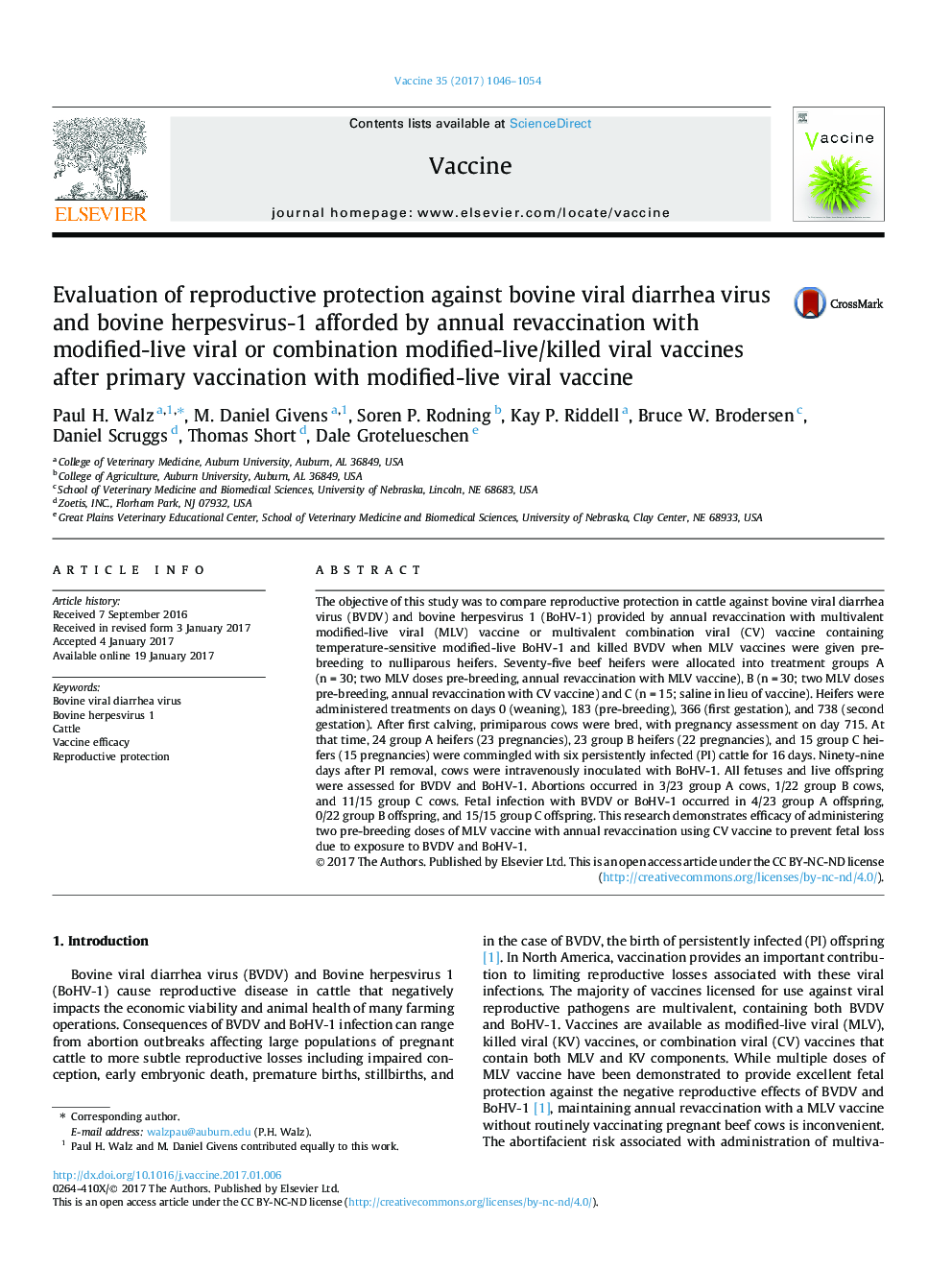| Article ID | Journal | Published Year | Pages | File Type |
|---|---|---|---|---|
| 5536592 | Vaccine | 2017 | 9 Pages |
Abstract
The objective of this study was to compare reproductive protection in cattle against bovine viral diarrhea virus (BVDV) and bovine herpesvirus 1 (BoHV-1) provided by annual revaccination with multivalent modified-live viral (MLV) vaccine or multivalent combination viral (CV) vaccine containing temperature-sensitive modified-live BoHV-1 and killed BVDV when MLV vaccines were given pre-breeding to nulliparous heifers. Seventy-five beef heifers were allocated into treatment groups A (n = 30; two MLV doses pre-breeding, annual revaccination with MLV vaccine), B (n = 30; two MLV doses pre-breeding, annual revaccination with CV vaccine) and C (n = 15; saline in lieu of vaccine). Heifers were administered treatments on days 0 (weaning), 183 (pre-breeding), 366 (first gestation), and 738 (second gestation). After first calving, primiparous cows were bred, with pregnancy assessment on day 715. At that time, 24 group A heifers (23 pregnancies), 23 group B heifers (22 pregnancies), and 15 group C heifers (15 pregnancies) were commingled with six persistently infected (PI) cattle for 16 days. Ninety-nine days after PI removal, cows were intravenously inoculated with BoHV-1. All fetuses and live offspring were assessed for BVDV and BoHV-1. Abortions occurred in 3/23 group A cows, 1/22 group B cows, and 11/15 group C cows. Fetal infection with BVDV or BoHV-1 occurred in 4/23 group A offspring, 0/22 group B offspring, and 15/15 group C offspring. This research demonstrates efficacy of administering two pre-breeding doses of MLV vaccine with annual revaccination using CV vaccine to prevent fetal loss due to exposure to BVDV and BoHV-1.
Related Topics
Life Sciences
Immunology and Microbiology
Immunology
Authors
Paul H. Walz, M. Daniel Givens, Soren P. Rodning, Kay P. Riddell, Bruce W. Brodersen, Daniel Scruggs, Thomas Short, Dale Grotelueschen,
